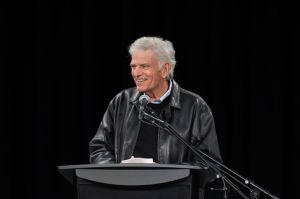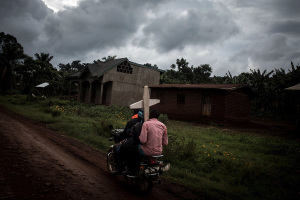Is the Calling to Be a Missionary More Honorable Than Other Callings?

Theologian John Piper is suggesting this week that there is a higher honor attached to being a foreign missionary than other callings.
In a Monday post on Desiring God, Piper notes that "history is moving toward one great goal, the white-hot worship of God and his Son among all the peoples of the earth. Missions is not that goal. It is the means. For that reason it is the second greatest human activity in the world."
But to Piper, who is the founder of desiringGod.org and chancellor of Bethlehem College & Seminary in Minnesota, missionaries who dare to take the Gospel into troubled contexts merit a greater respect.
As a pastor of over 30 years in a nation with modern comforts, surrounded by generally supportive people, Piper explains, "I have always felt that missionaries who have taken more risks, go into harder places, enduring greater trials with less affirmation are worthy of a kind of esteem and honor of which I am not worthy."
His own ministry "did not have some of the aspects of worth and honor that some missionary activities have," he added. Moreover, Scripture seems to suggests a greater esteem for those who serve God in a distinctly missional way.
The apostle Paul writes to Timothy in 1 Timothy 5:17 "Let the elders who rule well be considered worthy of double honor, especially those who labor in preaching and teaching." 1 Thessalonians 5:12–13 reads: "We ask you, brothers, to respect those who labor among you and are over you in the Lord and admonish you, and to esteem them very highly in love because of their work. Be at peace among yourselves."
In a phone interview Tuesday with The Christian Post, Assistant Professor of Missiology at Pittsburgh Theological Seminary Scott Hagley noted that a "hero narrative" about missionaries who go to unreached people groups in foreign lands is but one strand of thought, but Christians can consider more broadly what it means to be missional.
"From a theology of vocation perspective, I would come down more on the side of 'all of us are called and given our own particular gifts, stories, viewpoints and cultural location,'" Hagley said. "We are all called to participate in God's mission and if it is framed that way you can draw from a different set of biblical texts when how to talk about honor among the community...Any conversation around honor in the church too, is framed by the cross," he continued. "We all participate by his nature of Christ's self-giving to give of ourselves."
"I think we're in an era now where mission is more understood as 'everywhere to everyone.' And so, we participate in God's mission by crossing the street, we participate in God's mission by crossing an ocean."
When he thinks about and teaches about mission, Hagley wants to help the women and men of God in the church to discern where and how God is calling them.
Rich Starcher, associate dean of the School of Intercultural Studies at Biola University in La Mirada, California, said in a phone interview with CP Tuesday that it ultimately comes down to what God calls you to do.
"I spent 20 years in Africa in some pretty primitive places, so I wouldn't feel the hardships that I put up with on the mission field qualified me for greater esteem or honor," Starcher offered. "I think what it comes down to is obedience to God."
"Am I worthy of greater esteem? I don't know, I don't think so because it's merely doing what God allowed me to do. It is a theology of obedience, I guess, and one of relationship," he said.



























